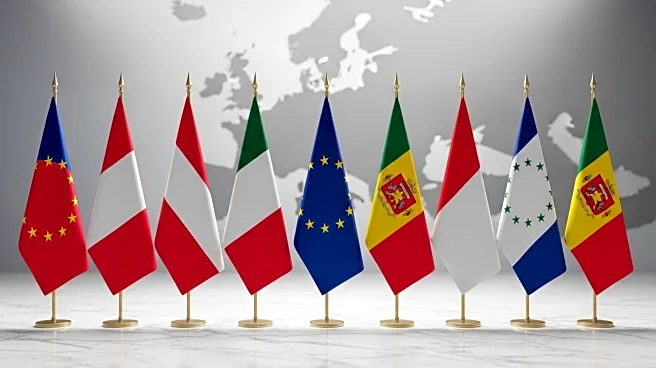What's Happening?
During a summit in Paris, President Emmanuel Macron of France announced that 26 countries have formally committed to securing peace in Ukraine post-conflict. This commitment includes the potential deployment of international troops on the ground, at sea, or in the air to deter Russian aggression. The summit, attended by over 30 heads of state and government, aimed to unify efforts to bring the United States on board in forcing Russia to end the ongoing war. Despite the show of unity, the summit yielded few concrete details about the security guarantees, and the role of the United States remains unclear.
Why It's Important?
The commitment by European nations to secure postwar Ukraine is significant as it represents a collective effort to stabilize the region and deter further Russian aggression. This move could potentially shift the geopolitical landscape in Europe, reinforcing the security of Ukraine and possibly influencing Russia's strategic calculations. The involvement of international troops could also impact military dynamics in the region, providing a deterrent against future conflicts. The lack of clarity regarding the United States' role highlights ongoing diplomatic challenges in achieving a unified international response.
What's Next?
The next steps involve clarifying the specifics of the security guarantees and determining the role of the United States in the broader plan. International sanctions against Russia may be considered if it refuses to engage in peace negotiations. The coalition of willing nations will continue diplomatic efforts to ensure a secure peace deal for Ukraine. Potential reactions from Russia and further diplomatic engagements will be crucial in shaping the future of the region.
Beyond the Headlines
The commitment to securing Ukraine post-conflict raises ethical and legal questions about international intervention and sovereignty. The deployment of international troops could set a precedent for future conflicts, influencing global norms regarding military intervention. Additionally, the long-term implications for European security and defense policies may evolve as nations reassess their strategic priorities in response to Russian actions.









